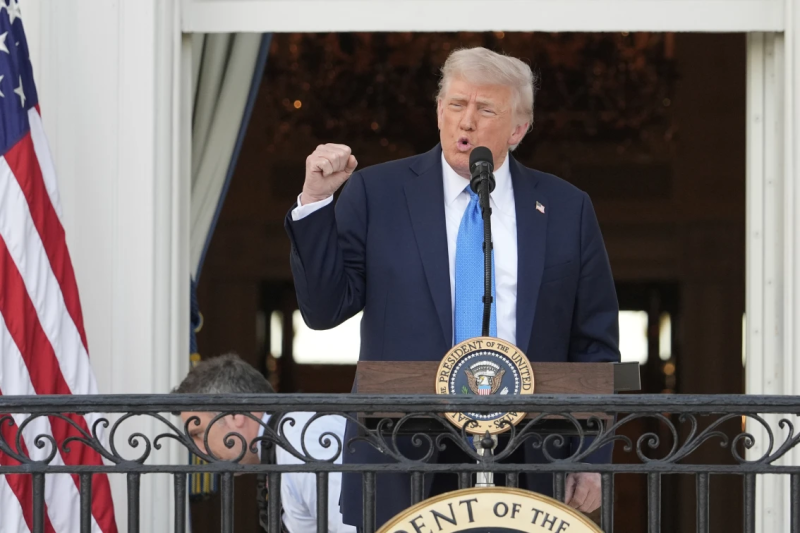- India Sees 9% Drop in Foreign Tourists as Bangladesh Visits Plunge |
- Dhaka Urges Restraint in Pakistan-Afghan War |
- Guterres Urges Action on Safe Migration Pact |
- OpenAI Raises $110B in Amazon-Led Funding |
- Puppet show enchants Children as Boi Mela comes alive on day 2 |
Trump Sets Travel Curbs on 19 Nations Starting Monday

Donald Trump on Wednesday reinstated a major immigration policy from his first term, declaring that citizens from 12 countries will be barred from entering the United States, while seven additional nations will face heightened travel restrictions.
The new measures will take effect at 12:01 a.m. on Monday, allowing time for implementation and potentially avoiding the confusion that occurred when a similar ban was enacted without warning in 2017.
Trump had signalled plans for the new restrictions earlier this year and is now on firmer legal ground following a favourable Supreme Court ruling related to his previous travel ban.
The 12 countries subject to the full travel ban are: Afghanistan, Myanmar, Chad, Republic of Congo, Equatorial Guinea, Eritrea, Haiti, Iran, Libya, Somalia, Sudan, and Yemen.
The seven countries facing increased travel restrictions—but not an outright ban—are: Burundi, Cuba, Laos, Sierra Leone, Togo, Turkmenistan, and Venezuela.
In a video message, Trump cited Sunday’s terror attack in Boulder, Colorado, as justification for the move, emphasising the risks associated with visa overstays. The suspect in that attack is from Egypt—a country not included in the new restrictions—and is reported to have overstayed a tourist visa.
Officials stress that the policy is aimed at enhancing national security by targeting countries with unstable governments, weak identity management systems, or insufficient cooperation on immigration enforcement.

